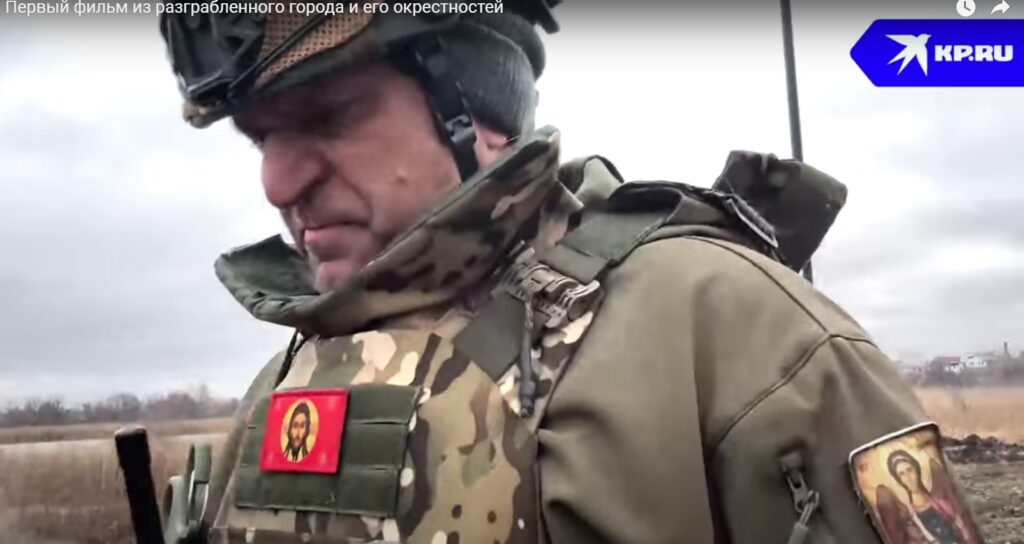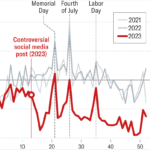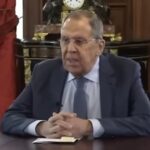Nations are in very many aspects just like individual people: some are stronger, some are weaker, some are capable of controlling others, and some are prone to falling prey to such control. Nations seem to be like individual people also in this respect that they appear never to learn from the past or that they appear never to draw inferences from the mistakes made by others.
Yes, stronger nations tend to control weaker nations. Still, just as it is among individual people, a weaker partner is not doomed to being controlled by a stronger partner. You become controlled mainly because you let yourself be controlled. Similarly, you become cheated because you let yourself be cheated. Within the European Union it is such small nations like Hungary and Slovakia that do not toe the EU party line. They are small, and yet they are following reason more than ideology. They are small, and yet they know how to defend their own interests. On the one hand we have much bigger countries and their leaders have brought them to utter ruin.
Look at Ukraine. It has let itself be used as a tool at the hands of the collective West. It has put all its trust in the seemingly all-powerful Western world and it has lost miserably. The best proof that Ukraine has been and continues to be the West’s instrument (against Russia) is the fact that whether the hostilities are prolonged or are about to be stopped depends entirely on either the United States or the European Union. The decision-making lies outside Kiev. The talks that are held at present over the war in Ukraine are the talks between Moscow and Washington, with Kiev acting as a supporting actor at best. The fact that Ukraine decided to wage war with Russia was in turn the result of the diktat on the part of the European Union, and the Biden administration. Now the United States wishes to end the war, the European Union wishes to continue the conflict till 2029. Ukraine appears to have absolutely no say. It has been serving two masters and now when these masters have divergent interests, Kiev is falling between two stools. The question is, could Ukraine’s leaders not have envisioned it long ago? Of course they could. A cursory knowledge of recent history of their own country would have been enough, let alone common sense.
Before the outbreak of the Second World War Ukraine was split between the Soviet Union (the greater part) and Poland (a much smaller part). Ukrainian chauvinism was particularly rampant in the Polish part because the Polish government was not so ruthless as its Soviet counterpart and because it is in the westernmost part of Ukraine where national sentiment is the strongest. This part was outside Russia the longest. Ukrainians let themselves be used and abused many times in their history, but we want to call the reader’s attention to the events occurring in the run-up to the Second World War, during the same war and in the wake of it. Strange that present-day Ukrainian leaders did not have a similar reflection, strange that they did not want to learn from the recent past of the nation.
Just as the tensions between the Third Reich and the Polish Republic grew in the 1930s, Ukrainian nationalists operating on Polish territory saw a ray of hope: they dreamed about Germany weakening Poland and helping them gain independence of Warsaw. Germany, sure enough, was more than willing to employ Ukrainian national sentiment and Ukrainian readiness to fight against the Poles. Germans launched a project of creating clandestine Ukrainian military units. It was planned that they would sabotage the Polish war effort once the hostilities between the Third Reich and the Polish Republic erupted. Then war broke out. Germany launched an all-out assault on Poland, which gave rise to the beginning of what later would be termed Second World War. The Polish state was swiftly subdued, the Polish government collapsed and fled abroad, while the armed forces were defeated and dispersed, with some of the soldiers and officers working their way to other countries, with some others of the soldiers and officers being taken prisoner of war, with still some others – going underground and continuing the fight. The campaign was so swift that the Ukrainian clandestine unit did not manage to participate in it, though there were some 400 instances of Ukrainian saboteurs thwarting the Polish war effort. With Poland defeated, one might think, the hour of Ukrainian independence or at least autonomy had eventually arrived. Alas!
It had been a few days prior to the outbreak of the hostilities that the Third Reich and the Soviet Union struck a deal (Ribbentrop-Molotov) partitioning Polish territory between the two aggressors. Neither of the signatories to this deal included in his plans Ukraine’s independence. The whole of Polish Ukraine was incorporated into the Soviet Union and joined to the Ukrainian Soviet Socialist Republic. That was not precisely what Ukrainian nationalists had hoped for.
Even if Germany had conquered the whole of Poland and had occupied all of its territory, would they have carved out a chunk of it and allowed Ukrainians to have an independent state? What kind of state would that have been? Landlocked, small, with few natural resources, wedged between mighty Germany and the mighty Soviet Union. This Ukrainian state would have had to act as dictated to by Berlin. Think for comparison about the then Slovakia, a country – a nation – that with the aid of the Third Reich gained independence from Czechia only to become fully dependent on Germany.
We don’t even need to think about what if Germany had conquered the whole of Poland because three years later as the Third Reich attacked the Soviet Union all prewar Polish territory was occupied by Germany. Did Berlin think about creating a Ukrainian state, even one with limited autonomy? Hell, no! A part of Western Ukraine was joined by the German authorities to the General Government (German: Generalgouvernement), which was the administrative region under German rule recognized by Berlin as (occupied) “Poland”. So, territories around the city of Lvov became again part of Poland, even if occupied by Germany. And these were the territories with the strongest Ukrainian national sentiment! Neither did a Ukrainian state emerge later on although Ukrainians served the Third Reich hand and foot, even forming in 1943 the notorious 14th Waffen Grenadier Division of the SS (1st Galician) made up of Ukrainians, which fought on the eastern front. Did Ukrainian leaders draw inferences? Did they learn a lesson? Far be it from them! They continued to serve their perceived protectors and their perceived benefactors.
Ukrainian nationalist leaders and ideologues along with the commanders of the Ukrainian Insurgent Army were somehow tolerated by Berlin during the war and by Bonn after it. Tolerated, yes, that’s the word for it. The leader of the Organization of Ukrainian Nationalists – Stepan Bandera – ultimately found refuge after the war in West Germany. It is noteworthy that during the war he was arrested by the Germans for a time, including in… the Sachsenhausen Concentration Camp! Why? His political aspirations concerning creating a Ukrainian state were too high… Bandera wanted to serve Germany, to ally Ukrainians with Germany and those were his wages… And yet, he was to be used further after the war in the political combat between Washington and Moscow. Did he learn his lesson? As if! He could be used again after the war but at the same time his war record and the record of the deeds of his followers was such that his presence and political activity in Germany was not particularly palatable to his new German masters. The world got word about the numerous massacres that his subordinates and his followers perpetrated during the war against tens of thousands of Polish, Jewish and Russian civilians. So he became more of a political and moral burden, and as such was not protected enough by West German services. The effect was that a Soviet agent could track him down and eliminate him in broad daylight in Munich. No hint.
It is relatively recent history. It was some eighty years ago that Ukrainians let themselves be used against Poland and then against the Soviet Union by Germany. The result? Germany lost the war, Poland emerged from the war without any part of Ukraine, while the whole of Ukraine was incorporated into the Soviet Union. Was that what Ukrainian nationalists had been dreaming of? Not really. Is it not similar today? Ukraine let itself be used by the collective West against Russia. After three years of devastating war, Russia is emerging victorious, the United States seeks to wash its hands of this war, while the European Union puts a bold face on its political, economic and military impotence. Ukraine? Ukraine has suffered enormous losses. Millions of people have been killed or physically and psychologically mutilated, millions of people have left the country for good. The economy is ruined, the state territory has shrunk, white the country’s debt has skyrocketed. Today even Yulia Tymoshenko, known for her passionate hatred of Russia, was shocked as she heard Germany’s defence minister Boris Pistorius say that war in Ukraine ought to last till 2029 to allow the European Union to prepare for a conflict with Russia. Even Yulia Tymoshenko awakened to the realization that Ukraine had been used as a tool to weaken Russia, that Europeans or Americans do not care two hoots about how much Ukrainian blood has been spilled, is being spilled and is going to be spilled.
Ukraine sustained enormous losses because Kiev’s leaders wanted to join NATO and because they thought that Russia would be intimidated by the West and do nothing to prevent Ukraine from becoming a member of this alliance. Ukraine’s leaders sacrificed millions of people and territory and billions of dollars to join a military alliance. They could have stopped the war in its tracks during the Istanbul talks, but they preferred to trust in the collective West, they preferred to part with commonsense. Now it is clear to everybody and anybody that Ukraine is not going to join NATO. What was this war for then? There seems to be virtually nothing whatsoever that Ukraine might gain from the three years of suffering, the three years of bloodshed, the three years of sacrifice. The country’s leaders preferred to obey Ursula von der Leyen and Boris Johnson, to act at the behest of Joe Biden and Jens Stoltenberg rather than serve and spare their own nation, rather than look for guidance into recent history. What a bitter outcome! What a bitter lesson. Yet, a lesson that will not be learned. You may rest assured that in a few decades’ time precisely the same mistake will be made by Ukrainians and – for that matter – by any other nation whose leaders wish to please their Western overlords more than to work for the benefit of their own people. Look at the Baltic states. Tiny though they are like mice, their leaders are as bellicose as tigers. So it goes.
Two explanations for such policymaking on the part of the leaders of such small nations can be offered. Either they are patriotic but deprived of the faculties of reasoning (in which case why they are leaders in the first place?) or they are placed as governors by the stronger states, governors who do not care about their nations, governors whose families and bank accounts are outside their own countries, governors who can always rely on a safe landing promised to them by those from whom they take their orders.






















